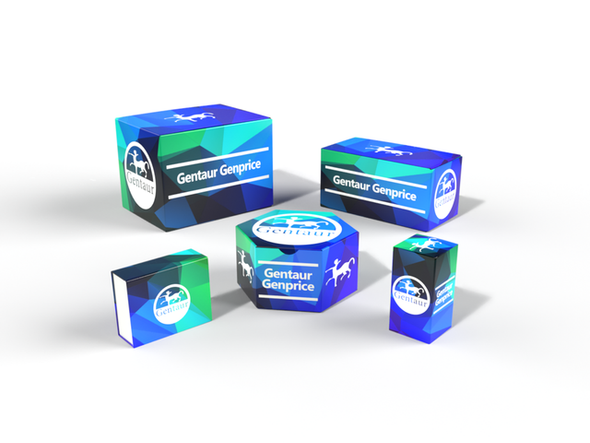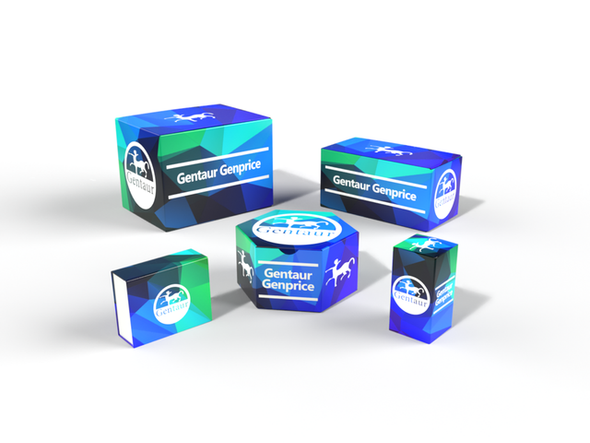Description
Recombinant Acidic Cytokeratin Antibody [KRTL/1577R] | 34-088 | Gentaur UK, US & Europe Distribution
Host: Rabbit
Reactivity: Human
Homology: N/A
Immunogen: An amino acid sequence common to acidic/type I keratins (1) was used as the immunogen for the recombinant Acidic Cytokeratin antibody.
Research Area: Signal Transduction
Tested Application: IHC-P
Application: Immunohistochemistry (FFPE) : 1-2 ug/ml for 30 min at RT (3)
Prediluted IHC only format: incubate for 30 min at RT (2)
Titering of the recombinant Acidic Cytokeratin antibody may be required for optimal performance.
1. This antibody will detect cytokeratins -10, -14, -15, -16, -19.
2. The prediluted format is supplied in a dropper bottle and is optimized for use in IHC. After epitope retrieval step (if required) , drip mAb solution onto the tissue section and incubate at RT for 30 min
3. Required HIER: boil tissue sections in 10mM citrate buffer, pH 6, for 10-20 min followed by cooling at RT for 20 min.
Specificiy: N/A
Positive Control 1: N/A
Positive Control 2: N/A
Positive Control 3: N/A
Positive Control 4: N/A
Positive Control 5: N/A
Positive Control 6: N/A
Molecular Weight: N/A
Validation: N/A
Isoform: N/A
Purification: Protein A affinity chromatography
Clonality: Recombinant Monoclonal
Clone: KRTL/1577R
Isotype: IgG, k
Conjugate: Unconjugated
Physical State: Liquid
Buffer: PBS with 0.1 mg/ml BSA and 0.05% sodium azide
Concentration: 0.2 mg/mL
Storage Condition: Aliquot and Store at 2-8˚C. Avoid freez-thaw cycles.
Alternate Name: N/A
User Note: Optimal dilutions for each application to be determined by the researcher
BACKGROUND: There are two types of cytokeratins/keratins/CKs: the acidic type I cytokeratins and the basic or neutral type II cytokeratins. The subsets of cytokeratins which an epithelial cell expresses depends mainly on the type of epithelium, the moment in the course of terminal differentiation and the stage of development. Thus this specific keratin fingerprint allows the classification of all epithelia upon their keratin expression profile. Furthermore this applies also to the malignant counterparts of the epithelia (carcinomas) , as the keratin profile tends to remain constant when an epithelium undergoes malignant transformation. The main clinical implication is that the study of the keratin profile by immunohistochemistry techniques is a tool of immense value widely used for tumor diagnosis and characterization in surgical pathology. [Wiki]

![Recombinant Acidic Cytokeratin Antibody [KRTL/1577R] Recombinant Acidic Cytokeratin Antibody [KRTL/1577R]](https://cdn11.bigcommerce.com/s-1rdwiq712m/images/stencil/608x608/products/484281/490110/gentaur-genprice__26005.1661610467__29809.1661628092__75433.1661676199__77988.1661684280__64362.1661692443__02085.1662049603__45075.1662119302__91744.1662191540__21580.1662291419__49016.1663498845.png?c=1)








